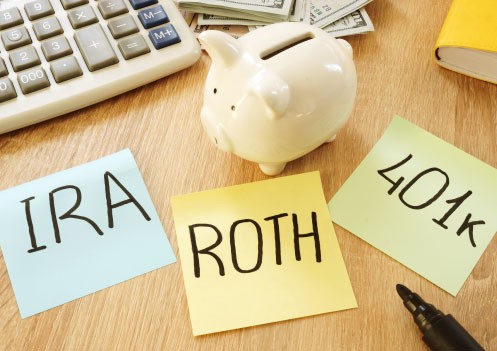You know I am a huge believer that the best way to save for retirement is a Roth Individual Retirement Account (IRA). But there’s actually something even better.
A Roth 401(k). And there’s an increasingly high chance you can save in a Roth 401(k) through work.
For decades the only 401(k) was a traditional 401(k). But over the past decade or so, employers have been allowed to add a Roth 401(k) option. It took some time to gather steam, but according to a Callan survey of large employers, more than 80% of plans now offer a Roth 401(k) in addition to a Traditional 401(k).
If your plan offers the Roth 401(k), I think you should definitely grab it. Check with the plan or H.R. If you tend to tune out emails and meetings about new plan features, you may not even be aware the Roth option was added since you enrolled in the plan. It’s easy to make the switch.
Here’s why you are crazy not to consider saving in a Roth 401(k).
Tax-free money in retirement. Every penny you withdraw from a Traditional 401(k) will be taxed as ordinary income. Every penny you withdraw from a Roth 401(k) will be 100% tax free.
Everyone is eligible, and you can save 3x more than in an IRA. There is no income eligibility test with a Roth 401(k), like there is with a Roth IRA. If your plan offers a Roth 401(k), you can use it. That’s an opportunity to build up a big pot of tax-free retirement money. This year, anyone under age 50 can save $19,000 in a Roth 401(k), compared to a $6,000 limit in a Roth IRA. If you are at least age 50 you can save $25,000 v. $7,000 for a Roth IRA.
Tax rates are at historic lows. For years the Traditional 401(k) was the only option. And one of the popular benefits was that money you contribute reduces your taxable income for that year. So, for example, if you make $50,000 and contribute $5,000 to a Traditional 401(k), your taxable income for the year is just $45,000. That’s indeed a benefit to consider, but the value of that tax break is near a record low thanks to the new tax laws that went into effect with our 2018 tax returns. Chances are your effective tax rate is lower now.
Given that rates are near historic lows, I think the Roth 401(k) is the better tax move. You will thank yourself in retirement if you choose the Roth option today: you’re not “losing” that much of a tax break today in return for being able to avoid taxes in retirement.
The better you are at saving for retirement, the less likely your tax rate will fall in retirement.
One of the common pitches for Traditional 401(k)s is that you are told you will likely be in a lower tax bracket in retirement. That would mean that when you pay income tax on your traditional 401(k) withdrawals it will be at a lower rate. I see two potential issues with that.
First, just because tax rates are low today doesn’t mean they will stay low. Our ballooning national debt suggests there may be plenty of pressure to increase rates in the coming years.
Even if rates stayed where they are, I still don’t think it’s a slam dunk that your tax rate will be lower in retirement. If you did all your saving in traditional IRAs and traditional 401(k)s, the law says that once you turn 70 ½ you must start taking withdrawals. You are literally forced into withdrawals so the government can collect the tax. The more you’ve saved in traditional accounts, the more taxable income you will have in retirement, and that can mean your tax rate stays the same, rather than drops.
No required minimum distributions. If you save money in a Roth 401(k), you can move the account to a Roth IRA when you retire (or whenever you leave that employer/plan.) There is no tax bill when you move from a Roth 401(k) to a Roth IRA. And once the money is in the Roth IRA you are not forced into making annual required minimum distributions (RMDs). And when you do want to use the money, there will be no tax bill.
Top Resources for You

The Ultimate Retirement
Guide for 50+
Learn More

MUST HAVE® Documents
Online Program
Learn More





